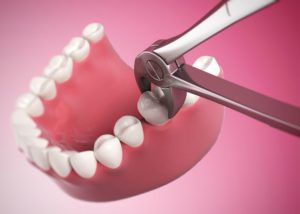Dental Extraction
If you’re in Norbury or Croydon and need a dental extraction, Norbury Dental offers expert care to ensure a smooth and comfortable procedure. Trust our experienced team to handle your extraction with precision and compassion.
Toothache is very painful and is a time of extreme anxiety, lending itself to moments of impulse decisions.
 Rest assured we will do everything possible to try and help you save your tooth, but if a removal is needed, we will make it as comfortable and pain free as possible.
Rest assured we will do everything possible to try and help you save your tooth, but if a removal is needed, we will make it as comfortable and pain free as possible.
Tooth extraction procedures today are far less painful than ever before. We will always make sure that the area is completely numb before removing the tooth. In many cases, a patient who has a tooth extracted experiences little or no discomfort and only minor bleeding.
Most tooth extractions are a straightforward procedure, followed by at-home care that includes rest and gentle care of the extraction site. Patients with extracted teeth sometimes need to take an antibiotic, and at the very least, take precautions following the procedure to ensure that infection doesn’t occur.
Postoperative dental extraction advice
- For the first 24 hours, try to avoid eating hot food, don’t smoke, don’t drink any alcohol and try not to disturb any blood clot which might have formed.
- Don’t rinse your mouth for 6- 12 hours after extraction. After that, rinse gently with warm salty water – half a teaspoon of salt in a glass of water is enough.
- Brush your teeth as normal to keep your mouth as clean as possible.
- You may feel some small pieces of bone work their way out of the socket
- Don’t worry, this is perfectly normal.
- There may be some swelling and a bit of discomfort in the first two to three days. If you need to, take some ordinary painkillers, such as what you would take when you have a headache.
Your dentist may have given you some gauze to place onto the area where the tooth has been removed – if not, a clean cloth handkerchief will do just as well (but not a paper tissue).
- Roll it into a small firm pad large enough to fit over the gap (probably around 1cm by 3cm).
- Sit up and gently clear away any blood clots around the gap using the gauze or handkerchief.
- Put a clean pad over the gap (from tongue side to cheek side) and bite down on it firmly for atleast 15 minutes.
- Take the pad off and check whether the bleeding has stopped. If not, apply a fresh pad and contact your dentist
If you feel pain a few days after the tooth has been removed, it might be where the blood clot has broken down leaving an empty hole in the gum. Smoking, vigorous brushing, rinsing, and drinking liquids through straws are discouraged during the post-operative period because they hinder healing and may cause the wound to open.
This is called a ‘dry socket’ and will need to be looked at by your dentist. Simply go back and the dentist will pack the wound to ease your discomfort.
After you have had a tooth out, talk to your dentist about ways to replace this tooth and fill in the gap to help you eat and smile with confidence. We recommend booking in with our Implant Dentist for a consultation to talk to you about all your options.
Book your appointment online
Request a call back
| Monday | 9:00AM – 5:15PM |
| Tuesday | 9:00AM – 5:15PM |
| Wednesday | 9:00AM – 5:15PM |
| Thursday | 9:00AM – 5:15PM |
| Friday | 9:00AM – 4:00PM |
| Saturday | Closed |
